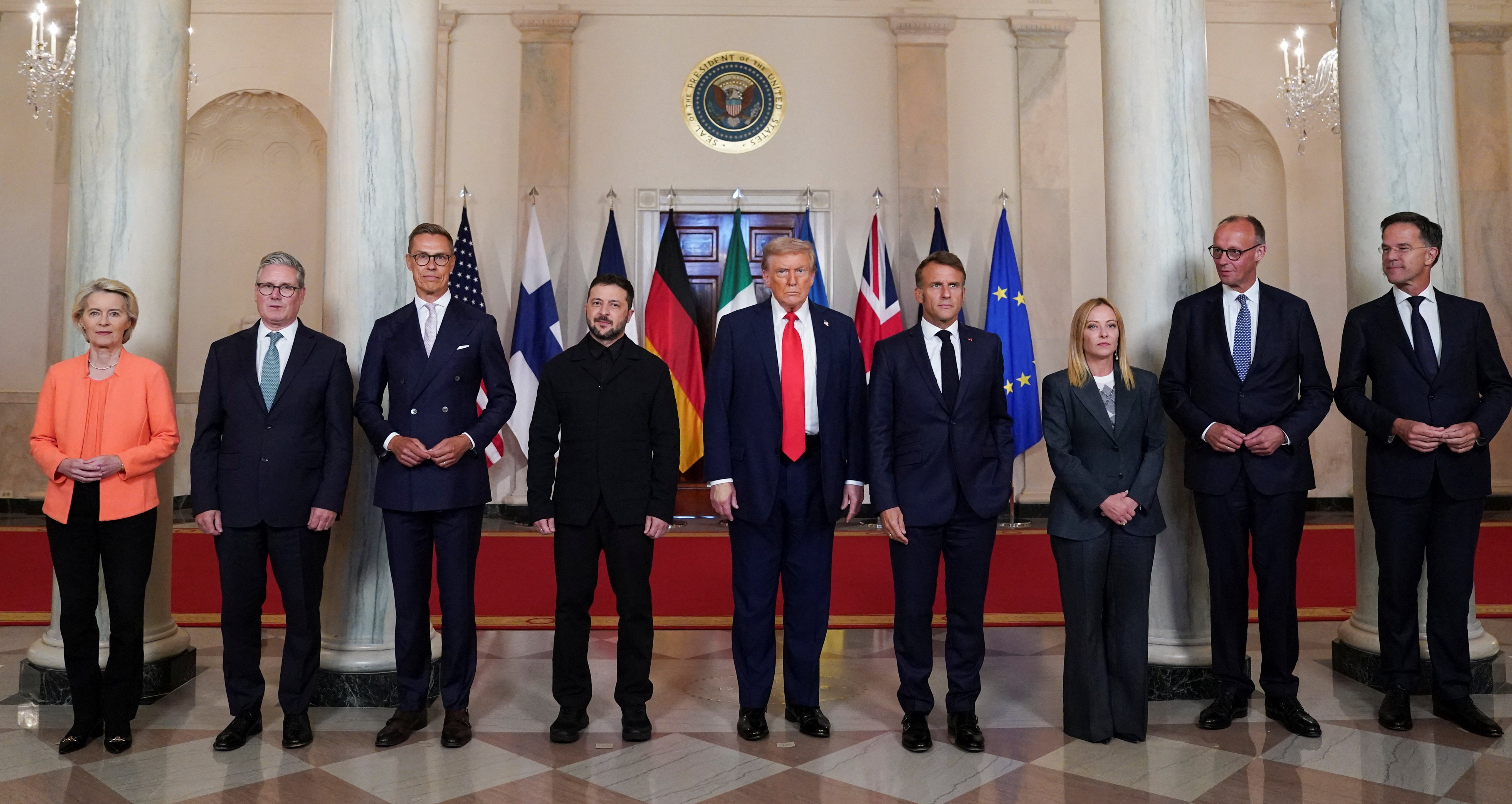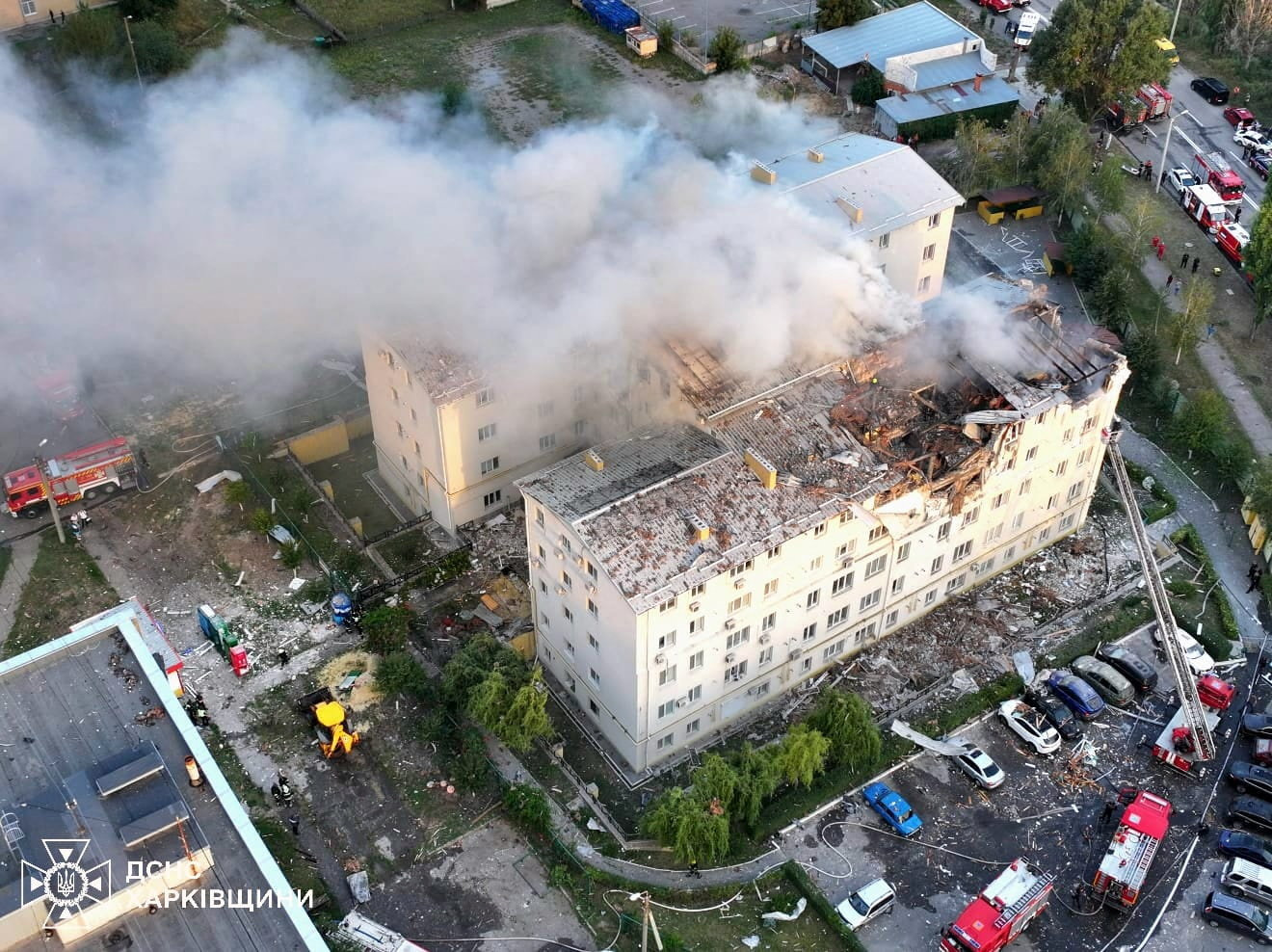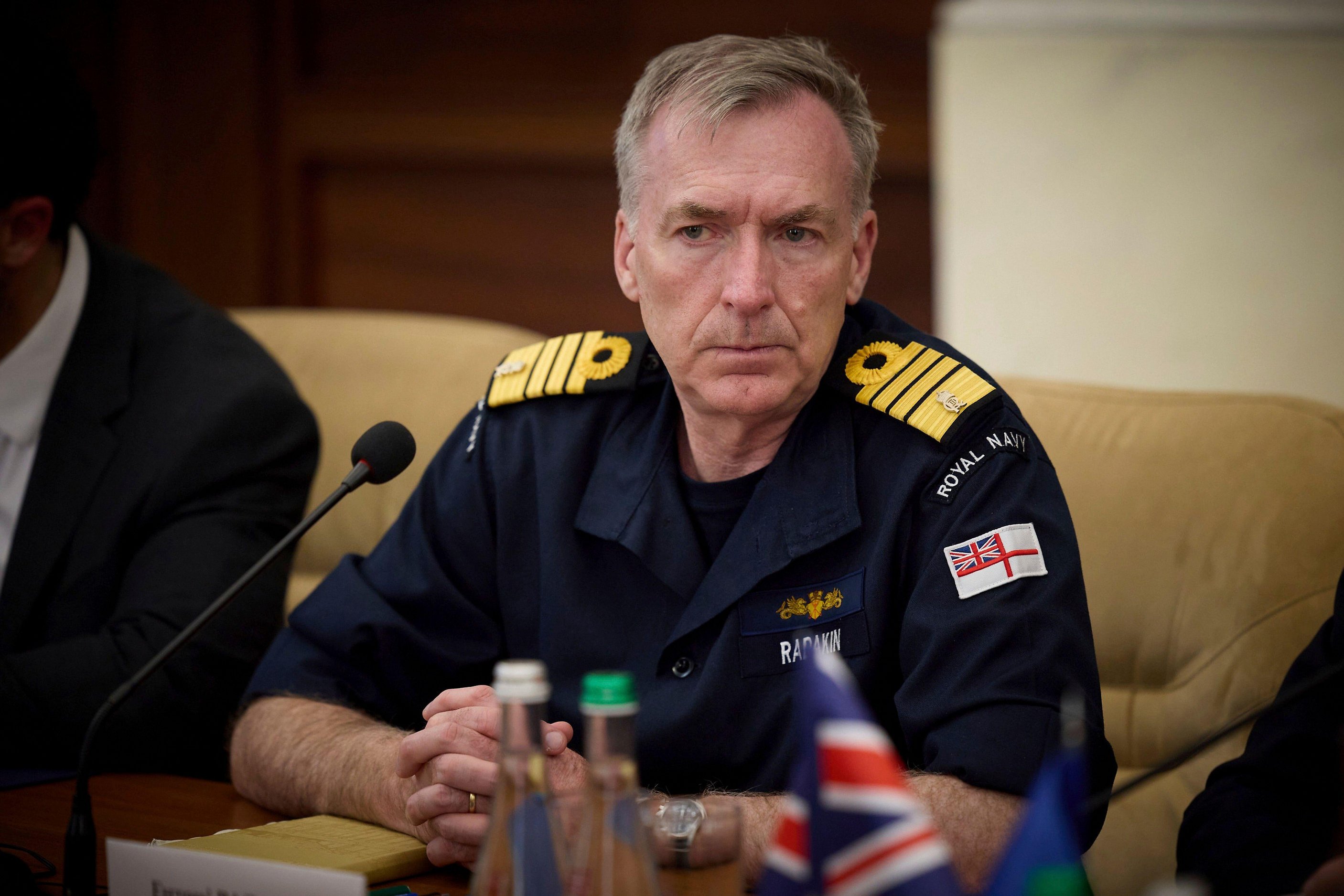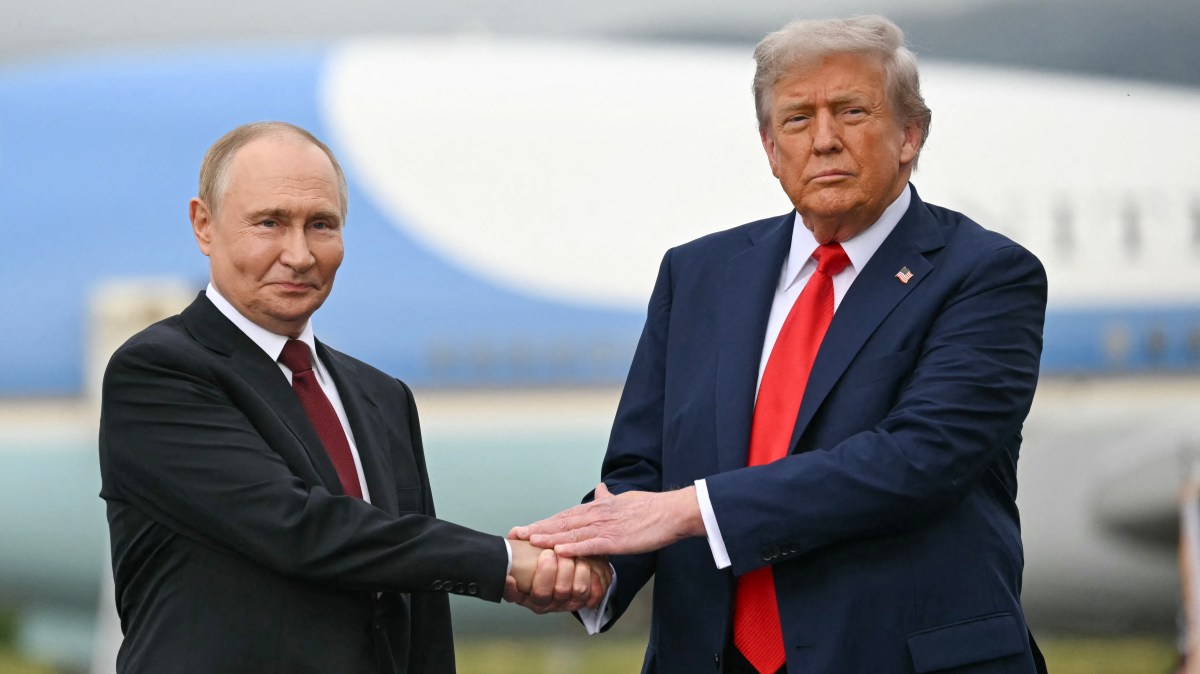European countries want President Trump to deploy American fighter jets to Romania as part of the US security guarantees to end the war in Ukraine, The Times understands.
Senior European military chiefs are discussing the deployment of American F-35s to Romania, where Nato is building its largest airbase in Europe, to deter Russia from reinvading.
On Monday, Trump ruled out the deployment of American boots on the ground in Ukraine but said he was willing to provide “air” support as part of US security guarantees.
After that meeting, which was attended by President Zelensky and European leaders, military chiefs gathered in Washington to discuss the logistics of American support.

President Trump welcomed President Zelensky and seven European leaders to the White House on Monday. From left: Ursula von der Leyen, Sir Keir Starmer, President Stubb of Finland, Zelensky, Trump, President Macron, Giorgia Meloni, Friedrich Merz and Mark Rutte
ALEXANDER DRAGO/REUTERS
General Dan Caine, the US chairman of the joint chiefs of staff, hosted the top generals from the UK, Germany, France, Finland and Italy to discuss American security guarantees.
Nato currently runs air policing missions over the Black Sea from the Mihail Kogalniceanu airbase in Romania — which was a hub for American forces during the Iraq war, and is the likeliest location for American jets.
In addition to US fighter jets based in Romania, European countries want guarantees over the continued use of American satellites for GPS and reconnaissance in Ukraine. They want a US commitment to supply Ukraine with Patriot and Nasams air defence missiles to shoot down Russian attacks as well as permission to fly spy planes over the Black Sea.
The RAF has been conducting reconnaissance missions with Rivet Joint aircraft since the early days of the war but the Boeing-made aircraft require American approval to fly.
As part of the so-called coalition of the willing, Britain has offered to deploy Typhoon fighter jets to western Ukraine and a brigade of 3,000-5,000 troops to train the Ukrainian army. France, Canada and Australia could also send troops to western Ukraine.
However, Russia has objected to the deployment of any western troops. On Wednesday, Sergey Lavrov, the Russian foreign minister, said that Moscow and Beijing should be given a veto on western military support for Ukraine and said that Nato talks over security guarantees were a “road to nowhere”.
Lavrov said that security guarantees discussed between Russia and Ukraine in Istanbul in 2022 were a “very good example” of what the Kremlin would approve. Under those proposals, the five permanent members of the UN security council — China, Russia, the United States, Britain and France — would each have the power to veto military support for Ukraine. Such an agreement would allow the Kremlin to block any attempts to assist Ukraine.
• Ukraine security guarantees: four options for Europe and US
On Wednesday, Lavrov also equivocated over a meeting between Putin and Zelensky.
The White House said on Monday that such a meeting should be held before Trump offered to mediate at a trilateral summit. Lavrov said on Wednesday that Putin was “considering raising the level of delegation heads” at existing talks between the two sides.
Three rounds of peace talks in Istanbul this year have made little progress and have been largely treated with disdain by the Kremlin. The lead Russian negotiator in those talks was Vladimir Medinsky, a former culture minister.

A Russia drone strike on a building in Kharkiv on Monday
REUTERS
Lavrov said: “Following his phone conversation [on Monday] with US President Donald Trump, our president, Vladimir Putin, proposed not only continuing these talks but also considering raising the level of the delegation heads.
“We are open to any formats. But when it comes to meetings at the highest level, they must be prepared with the utmost care at every stage beforehand, so that summits do not worsen the situation but instead bring a real conclusion to the negotiations we are ready to continue.”
Admiral Sir Tony Radakin, Britain’s head of the armed forces and chief of the defence staff, attended talks at the Pentagon on Wednesday. Radakin is trusted by the Ukrainians and has previously smoothed over tensions between Kyiv and Washington.

Admiral Sir Tony Radakin
ALAMY
Radakin also joined a virtual meeting with Nato defence chiefs at which allies discussed their support to Ukraine.
